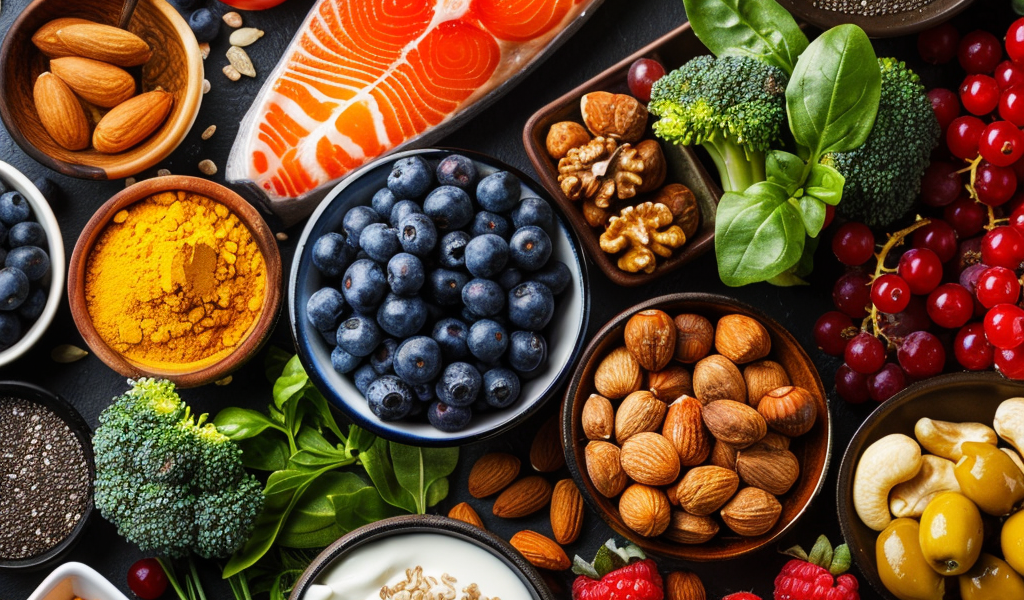Inflammation is a natural process in the body that helps with healing and fighting infections. However, when inflammation becomes chronic, it can lead to various health issues such as diabetes, cardiovascular disease, and arthritis. Diet plays a significant role in managing inflammation, and certain nutrients can help combat harmful inflammation.
Here are some of the top anti-inflammatory nutrients recommended by dietitians:
1. Polyphenols
Polyphenols are powerful plant compounds that have anti-inflammatory properties. They work by inhibiting enzymes that produce free radicals, which can cause oxidative stress in the body. Foods rich in polyphenols include dark leafy greens, berries, olives, extra-virgin olive oil, and dark chocolate.
2. Omega-3 Fatty Acids
Omega-3 fatty acids are well-known for their anti-inflammatory benefits. They help maintain cell fluidity and play a role in cellular signaling. Consuming omega-3s regularly can help reduce inflammatory markers in the body. Sources of omega-3 fatty acids include walnuts, soy, chia seeds, flax seeds, and fatty fish.
3. Fiber
Dietary fiber is essential for gut health and can help reduce inflammation in the body. Fiber-rich foods include fruits, vegetables, whole grains, nuts, and seeds. Consuming an adequate amount of fiber can promote a healthy gut microbiome and support overall well-being.
4. Vitamin D
Vitamin D is known for its role in bone health, but it also has anti-inflammatory properties. Adequate vitamin D levels have been linked to reduced inflammation and improved immune function. Sources of vitamin D include sunlight, fatty fish, fortified foods, and supplements.
5. Turmeric
Turmeric is a spice with powerful anti-inflammatory effects due to its active compound, curcumin. Incorporating turmeric into your diet can help reduce inflammation and support overall health. Turmeric can be added to curries, smoothies, and teas for a flavorful boost.
6. Probiotics
Probiotics are beneficial bacteria that support gut health and can help reduce inflammation. Fermented foods like yogurt, kefir, sauerkraut, and kimchi are rich sources of probiotics. Including probiotic-rich foods in your diet can help maintain a healthy gut microbiome.
7. Zinc
Zinc is an essential mineral that plays a key role in immune function and has anti-inflammatory properties. Foods high in zinc include oysters, beef, poultry, beans, nuts, and seeds. Consuming an adequate amount of zinc can help modulate inflammation and support immune health.
By incorporating these anti-inflammatory nutrients into your diet, you can help reduce chronic inflammation and promote overall health and well-being.





